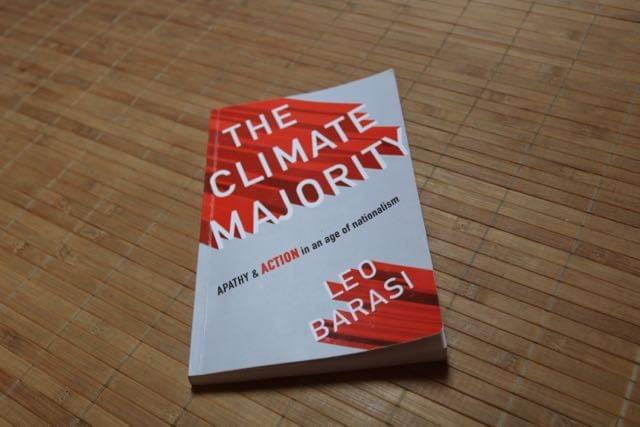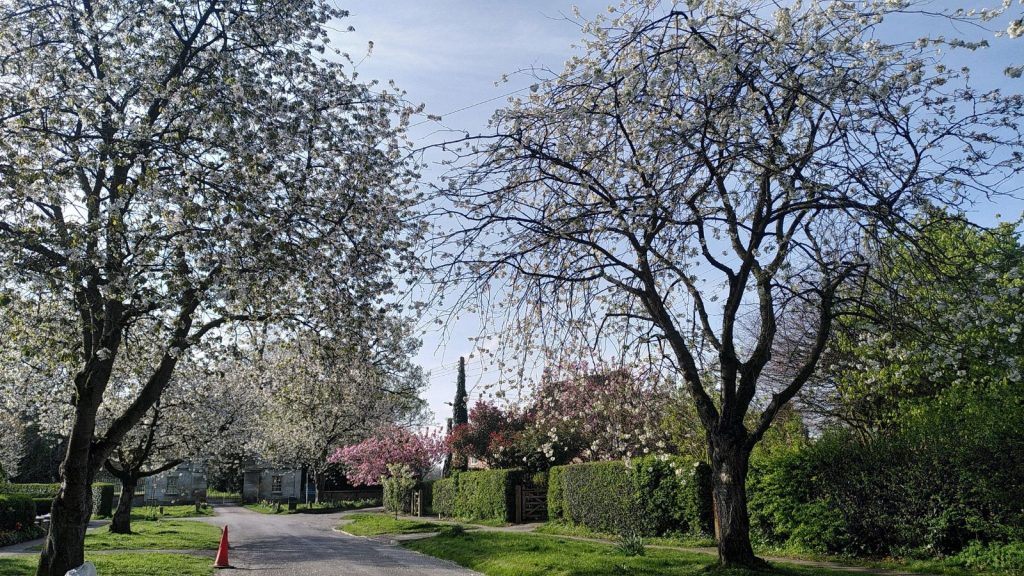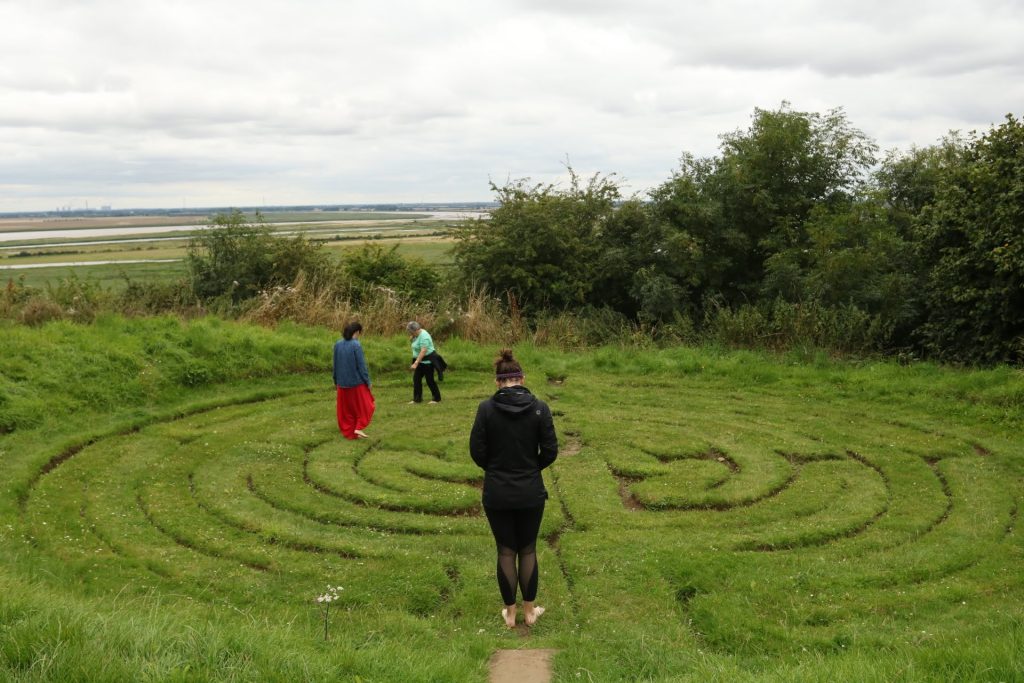When it comes to communications, what can we learn from 15 year olds?

The irony of procrastinating to read this book for 6 months is not lost on me. I am just as guilty of burying my head in the sand as my peers.
It took a week without internet at a course boldly titled ‘Writing to Make Change Happen’ that finally got me to open to page 1. But then I did not put it down. Barasi’s writing is accessible and human, which is crucial. Language has the power to embolden and motivate or exclude and alienate. Thankfully Leo’s style means he brings us along with him for all 180 pages, explaining the complexities of different climate scenarios and possible solutions. If we want to engage everyone into action – then we need to use words, and examples that the majority can relate to.
Barasi explores why we’re still hooked on the issue of climate denial, whether that be for media bait to stir up controversy or strategical political/corporate aims to sow the seeds of doubt thus debilitating mainstream action. But he shows that less than 15% of survey respondents from industrialised Anglophile countries would classify as climate deniers.

So where should we be focusing our efforts? Answer: The swing groups.
Citing Bill Clinton’s 1996 political campaign; they didn’t put all their efforts into converting those strongly opposed to them, nor only talk to their core supporters but they focused on groups of people that were undecided; the swings.
When it comes to the climate story; “The public aren’t a homogenous block with the same interests and motivations, and a good campaign doesn’t treat them as such.” As someone that has worked in NGO campaigning for a few years, while we know this we don’t always put it into practice and it was a good reminder to regularly assess how effective our communication tactics really are.
Barasi cites a 2009 UK poll after the dismal Copenhagen Climate Change conference – showing even those who thought climate change was a natural phenomenon most were still behind the goal to cut emissions; “among these doubters, 69 percent supported it, while only 24 per cent opposed it.”
These ‘doubters’ are a group that is neither environmentalist nor denier; “the consistent thing about how they see climate change is that they are not consistent,” adds Barasi. And this means there is potential to shift them one way or the other. Broadly speaking, through additional polling evidence from the UK, US and Australia, the swings can be broken down into two groups – the “Concerned’ and ‘Cautious”.
If these two groups could be shifted, we could have a majority motivated to act on climate change.
How do we address climate apathy in the swings? Firstly – let’s get clear on the story.
Barasi does a great job of spelling out what is going to be required of the human race if we are going to salvage ourselves from this self-inflicted crisis. He also argues why majority support will be key in trying to minimise the impact of climate change. He then tells us in plain english what the stakes really are in three descriptive but not sensationalist climate scenarios: firstly, if we adhere to and surpass the 2015 Paris Climate Change Agreement, secondly where easier changes are made but not the more difficult ones, and then thirdly the unravelling of any agreement and emissions continuing to rise.
I like to consider myself as fairly knowledgeable on this topic but I had not grasped it quite so comprehensively until digesting chapters three and four. My stern expression was fixed while riding public transport: this. is. serious. When my energy lapses I will reread these chapters to keep these scenarios, and therefore choices, in the front of my mind.
Where does climate apathy come from?
Barasi critiques the stories and messages we are using around climate change. His key points are summarised below:
- Climate change is not a common subject topic in everyday life
- Climate change lacks the punch that most journalists seek when pursuing a story and in a media climate that is led by clickbait we are seeing less stories on the topic appear
- The complexity of climate change consequences leads many of us to feel overwhelmed and struggle to see why it matters
- Human psychology makes us very bad at acting now on things that will happen in the future or notice changes that occur slowly
- Those of us from wealthy high-emitting countries are not yet being directly affected by the consequences of climate change – it’s happening to ‘the other people’ and that makes us less likely to make changes
- Climate change doesn’t fit the simple good vs evil narratives we have become accustomed to
- We tend to avoid loss so we don’t act. To really tackle climate change – each of us (especially from wealthy nations) is going to have to take a long hard look in the mirror and realise that we as individuals are contributing to the problem – and to make major changes in our lifestyle.
- Climate Change in the last decade has morphed into a ‘left issue’, due to the human psychology we favour the ‘in group’ like us and distance ourselves from the ‘out group’ – this is crippling widespread, cohesive actions that are needed.
So back to how do we address climate apathy in the swings?
Make it local and relevant
Climate campaigners take note – talking about polar bears, the jungle or indigenous peoples are not going to move the swing groups. We need to make the story of climate change and its consequences more local and more relevant.
“If everyone worried about climate change talks only to those who already agree with them about it, there won’t be enough support for the measures that will be essential for avoiding disaster.” Yep greenies – we need to stop always talking to each other – get out, get to know the swings and have important conversations out there.
Barasi shifts gears here as he acknowledges that while poor nations will be worst affected, if we want to motivate the swings we need to appeal to what matters to them; “we can’t assume that worrying about these victims will be enough to motivate a majority of people in rich countries to support action.” I sighed at this – in fact I wrote ‘sigh’ in the margins, alas it is a shame but he is right. He shifts to talk directly to high emitting, wealthy nations.
Make it tangible
Small numbers don’t convey the impact readily enough. To many citizens from high-emitting nations an average global temperature rise of 6 degrees and sea level rises up to 1.6 centimetres a year doesn’t sound THAT bad – that’s because most of us, and I’ll admit myself included here, don’t fully understand the definitions of these abstract and technical concepts. So, Barasi argues, let’s stop using them if we want to make ourselves understood to the swings.
Make it familiar
Humans are guilty of the ‘conjunction fallacy’, mistakingly “believing a familiar event described in detail is more likely than a generic event, even though the familiar event is a specific example of a generic event.” In other words, a poll Barasi references showed that “while only 33 percent think that heat waves will become more common by 2050, 52 per cent say they expect more old people’s health to suffer as a result of heatwaves by then.” So he reminds us of the power of a familiar story.
Make it honest, make it fair
Some elements of climate change may spell some good, at least in the short term; warmer winters, wine production further north etc. To avoid apathy we should not avoid these truths altogether as it spells distrust. Integrity will be crucial in winning over the swings. And we are going to all have to make personal sacrifices. Such as flying less, eating less meat and dairy. There is no real way to spin this and to do so would be counter-productive.
Political leaders and influencers need to acknowledge this and any solution needs to be distributed fairly. Barasi uses cutting aviation emissions as an example – to dissuade people from flying, prices could rise but this would only reduce those with lower incomes from flying thus the poorer people taking on the burden. What about a frequent flyer tax levy? What other fairer solutions could be created?
Make it applicable to all political leanings and the apolitical
“Those who are apathetic about climate change don’t identify with the Left and so assume that the threat is exaggerated for political reasons”. Interestingly the label ‘environmentalist’ diminished in popularity; a US poll showed in 1991, 76 percent identified with it, while only 42 percent in 2016. Voices from the Centre and Right should also be getting the limelight when it comes to debating how we can tackle climate change solutions. Barasi also suggests that these heated debates would certainly be newsworthy. Including the voices of ordinary people is vital too; community leaders, students, working mums and older generations etc. The voices need to be relatable to the diversity in the swings and the environmentalists need to listen and recognise when it might be more effective to stay quiet.
Make it hopeful
Some of us in the base segment (the approx 20% of us who are worried about climate change) are nihilistic about what we can do about the consequences of climate change – yep, that’s me too a lot of the time! Barai’s reminds us that “the level of emissions the world produces over the next couple of decades will determine the extent of warming the planet faces in the lifetime of many people alive now and certainly that of their children. So there clearly is still time to influence climate change…we can determine how much more warming it will face.” We need to translate this into our messaging and our tone.
Make it collective and positive
Tackling climate change is a collective action so we need to foster collective responsibility. Barasi suggests we talk about the new industries that are growing around the issue that are creating new jobs and strengthening local communities. One such example that comes to mind is the Transition Network, a growing international network of local communities tackling climate issues from the bottom up. There are some positives that would come out of cutting emissions, including cleaner air and health benefits – these are called secondary benefits of tackling climate change. While overemphasising the benefits might not be ethical they shouldn’t be ignored completely and can help motivate people.
Putting it into action
Barasi applies these principles and produces wording aimed at the swings. He includes paragraphs that spell out the consequences of climate change to the swings in wealthy nations, how it is a problem for everyone – not just environmentalists, how we can offer hope that things can change, offer solutions that can have benefits and honesty in the sacrifices that we will have to make. These paragraphs, which he encourages you to tweak to localise even more, are almost like a script we can use to motivate a swing member or two.
“There are currently more than twice as many swings as there are people in the base segment. If each person who is worried about climate change succeeded in winning over just one or two of the people that weren’t so worried those figures could be reversed.”
This is the challenge Barasi leaves at our door.
I’m considering adapting Barasi’s paragraphs then printing them (on recycled paper) and laminating them (if there’s an eco-friendly way of doing it) – memorising these words so I can call on them when I’m out and about. And I do need to get out and about, we need to get out of our comfort zones. As my hero Brené Brown adds, “we are going to need to intentionally be with people who are different from us,” doing this more often, I suspect, will benefit more than just climate apathy.
One aspect that I think is missing – is the community. I finished the book feeling pumped, psyched and ready to get going. But I have not found an online community of readers around this book – I feel certain there are growing numbers of people who feel more committed due to Barasi’s words that could benefit from coming together to exchange ideas and successes they’ve had when talking to swing members. This might give us the momentum we need to keep going. I’m waiting on a response from Barasi to a Facebook message I sent him *literally* after reading his last sentence.
You never know when and where you might change someone’s opinion, mind or behaviour. So now what?
- Stay informed (Barasi recommends carbonbrief.org, skepticalscience.com, climatechangenews.com, I’d add the Sustainababble podcast to the mix as well which is where I heard Barasi being interviewed and hence why I ended up buying and reading this book).
- Stay nourished by seeking solace in like-minded groups and venting in a safe space.
- But above all, get out there again and stay uncomfortable.
“The world can still stop dangerous global warming.”
You can purchase The Climate Majority via the New Internationalist bookshop: https://newint.org/books/the-climate-majority/
Take a listen to the Sustainababble podcast on Apathy, which serves as a great introduction to the topic: http://www.sustainababble.fish/?s=apathy






